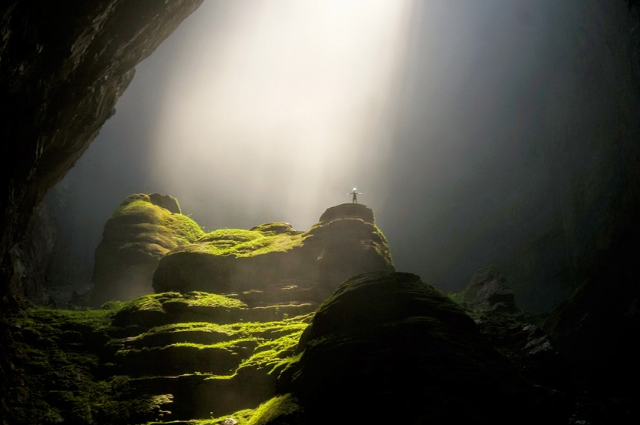
Have you ever caught yourself wondering what if everything around me is not real? The people we meet, the streets we walk on, even the thoughts in our heads, could they all be just an illusion? Sometimes life feels so vivid that we don’t even stop to think about it. This question is not new. From ancient sages in India to modern scientists, humans have always struggled with the possibility that life may not be what it appears to be, and though the answers vary, the curiosity remains the same. Only one question: Could it be that life is more like a dream or an illusion than a fixed reality?
Ancient Ideas of Illusion
Indian philosophy speaks of Maya, the belief that the world is not the ultimate reality but rather a veil hiding something deeper. Saints often described it as a dream we mistake for reality. According to this thought, “our senses show us a world, but what if they are only painting illusions on the canvas of our mind?”
Think of it this way: when you dream at night, everything feels real. You laugh, you cry, and you even feel pain, but when you wake up, the dream dissolves. Now imagine what if our waking life is also just another dream, waiting for a greater awakening?
Similarly, Buddhist teachings often compare life to a dream. They suggest that clinging too tightly to what we perceive as “real” only traps us in cycles of suffering. Instead, recognizing life’s illusory nature can bring freedom.
Centuries ago, in the West, Plato gave us the famous “Allegory of the Cave”. He described people chained inside a cave, only able to see shadows on the wall. For them, those shadows were the whole reality, but once one person escaped into the sunlight, he realized that the shadows were mere reflections of a world outside. The story has lasted for centuries, not because of its simplicity, but because it mirrors our own questions about what is real.
So, if shadows can be mistaken for reality in a cave, and dreams can feel like life itself, how sure are we that the world we live in now is the final truth?
Science and the Strange Nature of Reality
Science, the very field we trust for clarity, often responds with uncertainty, reminding us that reality may not be as solid as it seems. Physics reveals that matter, which looks solid, is mostly space. At the quantum level, particles do not even exist in definite positions until observed. That means reality itself shifts depending on how it is looked at.
Then there comes simulation theory, a modern idea suggesting that our universe could be like an advanced computer program. If true, we might just be characters inside someone else’s creation. It is a wild thought, but even respected scientists and thinkers entertain it. After all, if we can build virtual worlds in video games, why can't something greater build ours?
It makes you pause and wonder: if even the universe could be a construct, what does it truly mean to exist?
The Tricks of the Mind
Beyond science and philosophy, our own brains are experts at creating illusions. Colours, sounds, even the sense of time are all the brain’s interpretations of signals, not exact reflections of the outside world. Think of optical illusions you have seen in textbooks or online. The lines that look bent but are straight. The pictures that appear to move, though they don’t. These are small hints at how our mind doesn’t always show us reality as it is.
If tiny drawings can fool us so easily, imagine how much bigger the illusion of everyday life could be.
Dreams: The Best Metaphor
Dreams are the most relatable example of our lives. Every night, we step into worlds that feel utterly real, and the moment we wake, everything vanishes, leaving only a faint memory. If something so vivid can disappear without a trace, how certain can we be that our waking life is not just another layer of dreaming? Some Buddhist teachings even describe life as a “dream within a dream,” suggesting that reality might be far less solid than we assume.
If even our dreams can feel real and then vanish, how can we be sure that what we call life isn’t just another illusion waiting to dissolve?”
Do We Exist, or Do We Think We Exist?
There is always a counterpart to everything, like the fact that we wonder about reality shows, that something must exist. A famous philosopher, Descartes, once mentioned, “I think, therefore I am.” Even if everything else is uncertain, the act of thinking proves we are here in some way. But does this mean beyond our changing bodies and restless minds, could there be a deeper part of us, a quiet awareness that simply watches everything that happens?
Maybe the self we think we know is not as solid as it seems, and noticing this could change the way we see life altogether.
Conclusion
What if life is not what it seems? Ancient philosophers say it is a dream, and Plato warned us we may only see shadows. Science hints at realities of what we imagine our own minds constantly shape and trick our perceptions.
Perhaps the truth is not about picking one answer; maybe we will never have a final answer, but it is more about accepting that life is both real and unreal, and clear and mysterious as well. The beauty lies in the questioning itself, and we end up valuing it even more.
Whether life is an illusion or not, it is ours to live, to explore, and to experience. And perhaps the greatest truth is not hidden in final answers, but in the journey of seeking them.
